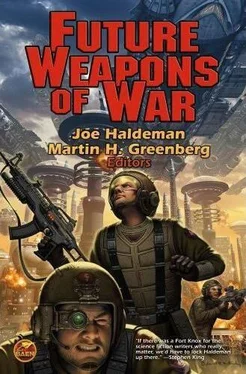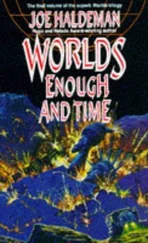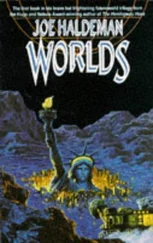After a while, work is all that’s left to you. Between the misplaced trust and the sights no human should have to bear, you stand, reporting, because you believe someone will care, someone stronger will Do Something.
Even though, deep down, you know, there is no one stronger, and nothing ever gets done.
* * * *
5:15 PM Upload:
Suicide Squadron Part I
by Martha Trumante
General Amanda Pedersen tells the story as if it happened two days ago instead of twenty years ago. She’s sitting in one of the many cafeterias in the Louvre, this one just beneath the glass pyramid where the tourists enter. She’s an American soldier on leave, spending a week with her student boyfriend at the Sorbonne. He has classes. She’s seeing the sights.
She’s just resting her feet, propping them up — American-style — on the plastic chair across from her. From her vantage, she can’t see the first round of security in the pyramid itself, but she can see the second set of metal detectors, the ones installed after the simultaneous attacks of ’19 that leveled half the Prado in Madrid and the Tate in London.
She likes watching security systems — that’s what got her to enlist in the first place, guaranteeing a sense of security in an insecure world — and she likes watching people go through them.
The little boy and his mother are alone on the escalator coming down. They reach the security desk, the woman opening her palm to reveal the number embedded under the skin, her son — maybe four, maybe five — bouncing with excitement beside her.
A guard approaches him, says something, and the boy extends his arms — European, clearly, used to high levels of security. The guard runs his wand up the boy’s legs, over his crotch, in front of his chest —
And the world collapses.
Thais how she describes it. The world collapses. The air smells of blood and smoke and falling plaster. Her skin is covered in dust and goo and she has to pull some kind of stone off her legs.
Miraculously, they’re not broken, but as the day progresses, part of her wishes they were, so she wouldn’t be carrying dead through the ruins of the Roman area, up the back stairs, and into the thin Paris sunlight.
She can’t go to the rebuilt pyramid, even now, nor to the Touleries Garden or even look at the Seine without thinking of that little boy, the smile on his face as he bounces, anticipating a day in the museum, a day with his mother, a day without cares, like five-year-olds are supposed to have.
Were supposed to have.
Before everything changed.
* * * *
The driver has left me. He will be back in two days, he says, waiting for me near the checkpoint, but I do not believe him. My trust only goes so far, and I will not pay him in advance for the privilege of ferrying me out of this place. So he will forget, or die, or think I have forgotten, or died, whatever eases his conscience if a shred of his conscience still remains.
I walk deep into the camp, my pack slung over my shoulder. My easy walk, my relatively clean clothing, and my pack mark me as a newcomer, as someone who doesn’t belong.
The heat is oppressive. There’s no place out of the sun except the tents the Red Cross and its relative out here, the Red Crescent, have put up. People sit outside those tents, some clutching babies, other supervising children who dig in the dirt.
Rivulets of mud run across the path. Judging by the flies and the smell, the mud isn’t made by water. It’s overflowing sewage, or maybe it’s urine from the lack of a good latrine system or maybe it’s blood.
There’s a lot of blood here.
I do no Miming, record no images. The Western world has seen these places before, countless times. When I was a child, late-night television had infomercials featuring cheerful men who walked through such places with a single well-dressed child, selling some religious charity that purported to help people.
Charities don’t help people here. They merely stem the tide, stop the preventable deaths, keep the worst diseases at bay. But they don’t find real homes for these people, don’t do job training, don’t offer language lessons, and more importantly, don’t settle the political crises or the wars that cause the problems in the first place.
The aide worker has a harder job than I do, because the aide worker—the real aide worker—goes from country to country from camp to camp from crisis to crisis, knowing that for each life saved a thousand more will be lost.
I prefer my work, focused as it can be.
I have been on this assignment for six months now. Writing side pieces. Blogging about the bigger events. Uploading pieces that give no hint of my actual purpose.
My editors fear it will make me a target.
I know that I already am.
* * * *
Whoever called these places camps had a gift for euphemism. These are villages, small towns with a complete and evolved social system.
You learn that early, in your first camp, when you ask the wrong person the wrong question.
Yes, violence is common here—it’s common in any human enclave—but it is also a means of crowd control.
Usually you have nothing to do with the extended social system. Usually you speak to the camp leaders—not the official leaders, assigned by the occupying power (whoever that may be), but the de facto leaders, the ones who ask for extra water, who discipline the teenagers who steal hydrogen from truck tanks, who kill the occasional criminal (as an example, always as an example).
You speak to these leaders, and then you leave, returning to the dumpy hotel in the dumpy (and often bombed-out) city, and lie on the shallow mattress behind the thin wooden door, and thank whatever god you know that you have a job, that your employer pays the maximum amount to ensure your safety, that you are not the people you visited that afternoon.
But sometimes, you must venture deep into the enclave, negotiate the social strata without any kind of assistance. You guess which tents are the tents of the privileged (the ones up front, nearest the food?), which tents are the tents of the hopelessly impoverished (in the middle, where the mud runs deep and the smells overwhelm?), and which tents belong to the outcasts, the ones no one speaks to, the ones that make you unclean when you speak to them.
Never assume they’re the tents farthest away from the entrance. Never assume they’re the ones nearest the collapsing latrines.
Never assume.
Watch, instead. Watch to see which areas the adults avoid, which parts the parents grab their children away from in complete and utter panic.
Watch.
It is the only way you’ll survive.
* * * *
The people I have come to see live in a row near the back of the medical tent. The medical tent has open sides to welcome easy cases, and a smaller, air-conditioned tent further inside the main one for difficult cases. There is no marking on the main tent—no garish red cross or scythe-like red crescent.
No initials for Doctors Without Borders, no flag from some sympathetic and neutral country.
Just a medical tent, which leads me to believe this camp is so unimportant that only representatives from the various charitable organizations come here. Only a few people even know how had things are here, are willing to see what I can sec.
Even though I will not report it.
I’m here for this group within the camp, an enclave within the enclave. I must visit them and leave. I have, maybe, eight hours here—seven hours of talk, and one hour to get away.
Читать дальше












